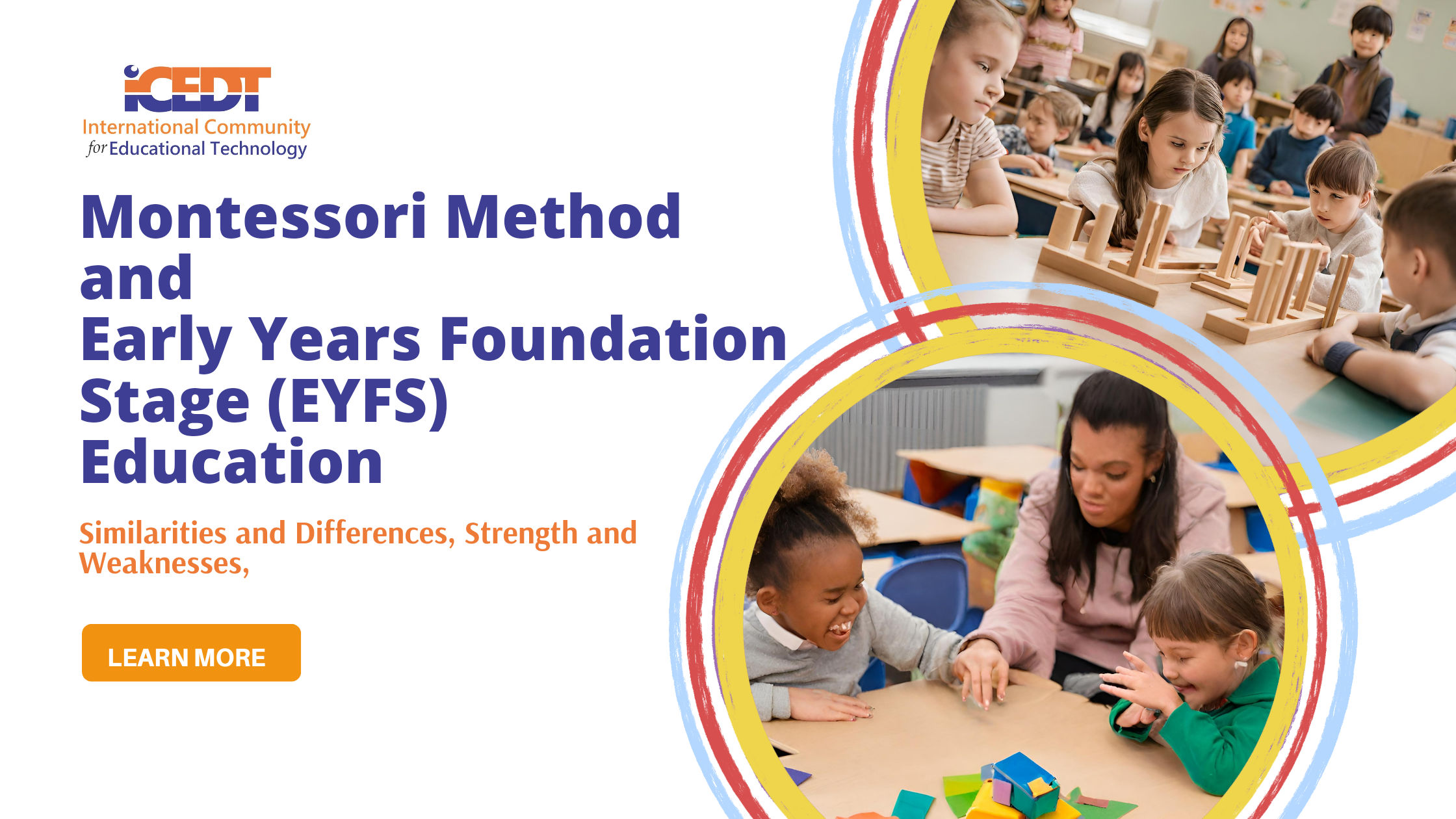
Montessori education is an educational approach developed by Dr. Maria Montessori in the early 20th century. It is characterized by a child-centered philosophy that emphasizes hands-on learning, independence, and individualized instruction. In Montessori classrooms, children are given the freedom to choose their activities from a carefully prepared environment with materials designed to facilitate self-discovery and skill development.
Key principles of Montessori Innovative Approach include:
1. Mixed-Age Classrooms: Montessori classrooms typically consist of children of different ages, often spanning a three-year age range. This design encourages collaboration and peer learning. Older children can help teach and mentor younger ones, fostering a sense of responsibility and cooperation. It also allows students to progress at their own pace, as they're not restricted by grade-level expectations.
2. Holistic Development: Montessori education places a strong emphasis on the holistic development of a child. This means that it goes beyond purely academic achievement and focuses on nurturing the child's social, emotional, and cognitive growth. The curriculum is designed to support the development of the whole child.
3. Child-Centered Learning: Montessori classrooms are designed to be child-centered rather than teacher-centered. The environment is carefully prepared with materials that encourage exploration and self-discovery. Children are given a degree of freedom to choose activities and work independently. This promotes a sense of autonomy and self-motivation.
4. Self-Directed Learning: Montessori education encourages children to take ownership of their learning. They are encouraged to explore their interests, make choices about their activities, and set their own pace for learning. This approach fosters a love for learning and helps children develop strong decision-making skills.
5. Concrete Learning Materials: Montessori classrooms often feature specialized learning materials that are designed to be hands-on and concrete. These materials help children grasp abstract concepts through direct sensory experience. For example, math concepts may be taught using physical counting beads or geometric shapes.
6. Respect for Individual Differences: Montessori educators recognize that each child is unique and progresses at their own rate. There's a strong focus on respecting and accommodating individual differences, including learning styles and developmental stages. This approach reduces competition and allows children to flourish at their own pace.
7. Observation and Guidance: Montessori teachers are trained to be keen observers of their students. They use observation to understand each child's needs and progress, providing guidance and support when necessary. This personalized attention helps children thrive.
8. Prepared Environment: Montessori classrooms are carefully arranged to create an environment that is conducive to learning. Everything, from the furniture to the learning materials, is chosen with the child's development in mind. This well-organized space promotes independence and concentration.
These principles work together to create a unique and effective approach to education that has had a lasting impact on early childhood education worldwide.
Teachers, known as Montessori guides, play a supportive role in observing and guiding students rather than traditional lecturing.
Montessori education values self-motivation and a love of learning, promoting qualities like curiosity, critical thinking, and creativity. It has gained popularity worldwide and is implemented in both public and private schools, catering to children from infancy through adolescence.
For exclusive Montessori resources, visit our page; https://icedt.org/resources
Choose a membership plan that'... Read more
Inspiring learning experiences on... Read more
Join the latest discussions and b... Read more
Don't miss ICEDT Community an... Read more
Enjoy edtech experts' mentors... Read more
Download cutting-edge re... Read more
© 2024 International Community for Educational Technology. All rights reserved.
Don't have an account? Create your account. It takes a few minutes!
Don't have an account? Create your account. It's take less then a minutes